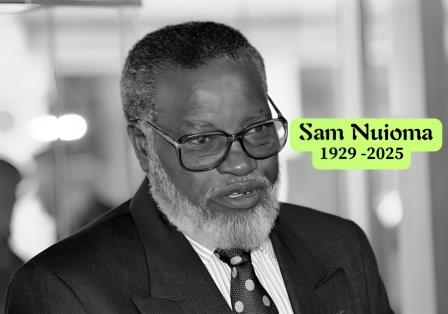Reflecting on Jimmy Carter’s Legacy: A President Who Made a Difference in Africa
Denver, CO — Recently in the United States, the world bid farewell to former President Jimmy Carter, a leader whose presidency and post-presidential efforts left an indelible mark on Africa. As the nation mourns the passing of former President Jimmy Carter, a poignant chapter closes on a legacy deeply intertwined with the African continent. While his single term in the White House (1977-1981) may not be remembered for sweeping domestic victories, Carter’s imprint on Africa remains undeniable, which attests to his commitment to human rights and international cooperation.
As dignitaries and citizens gathered to honor his memory, it is fitting to reflect on the profound impact Carter had on the African continent during his time in office and beyond.
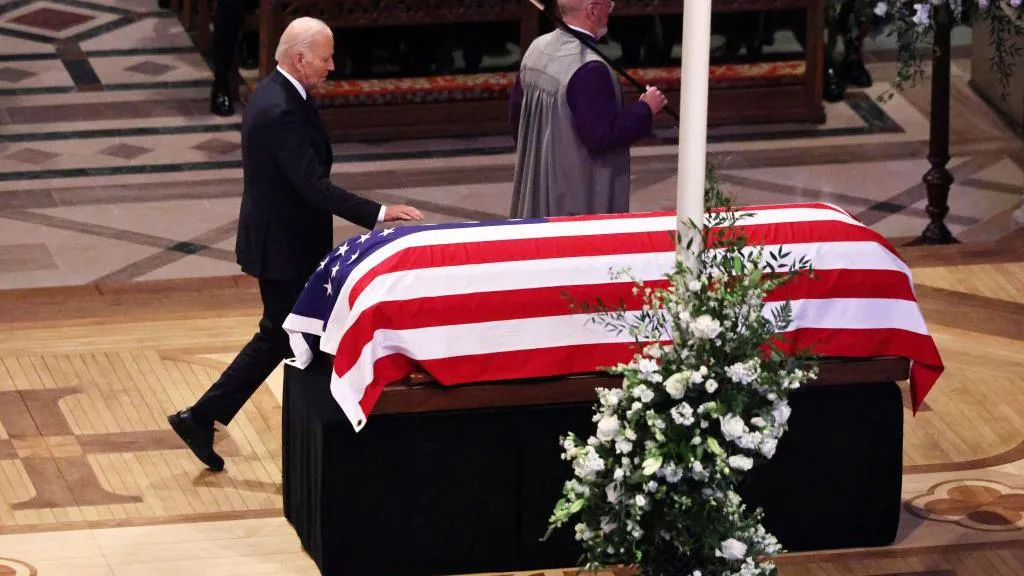
President Biden touched Carter’s casket just before he delivered his eulogy at the National Cathedral. Credit-BBC
A President with a Vision for Africa
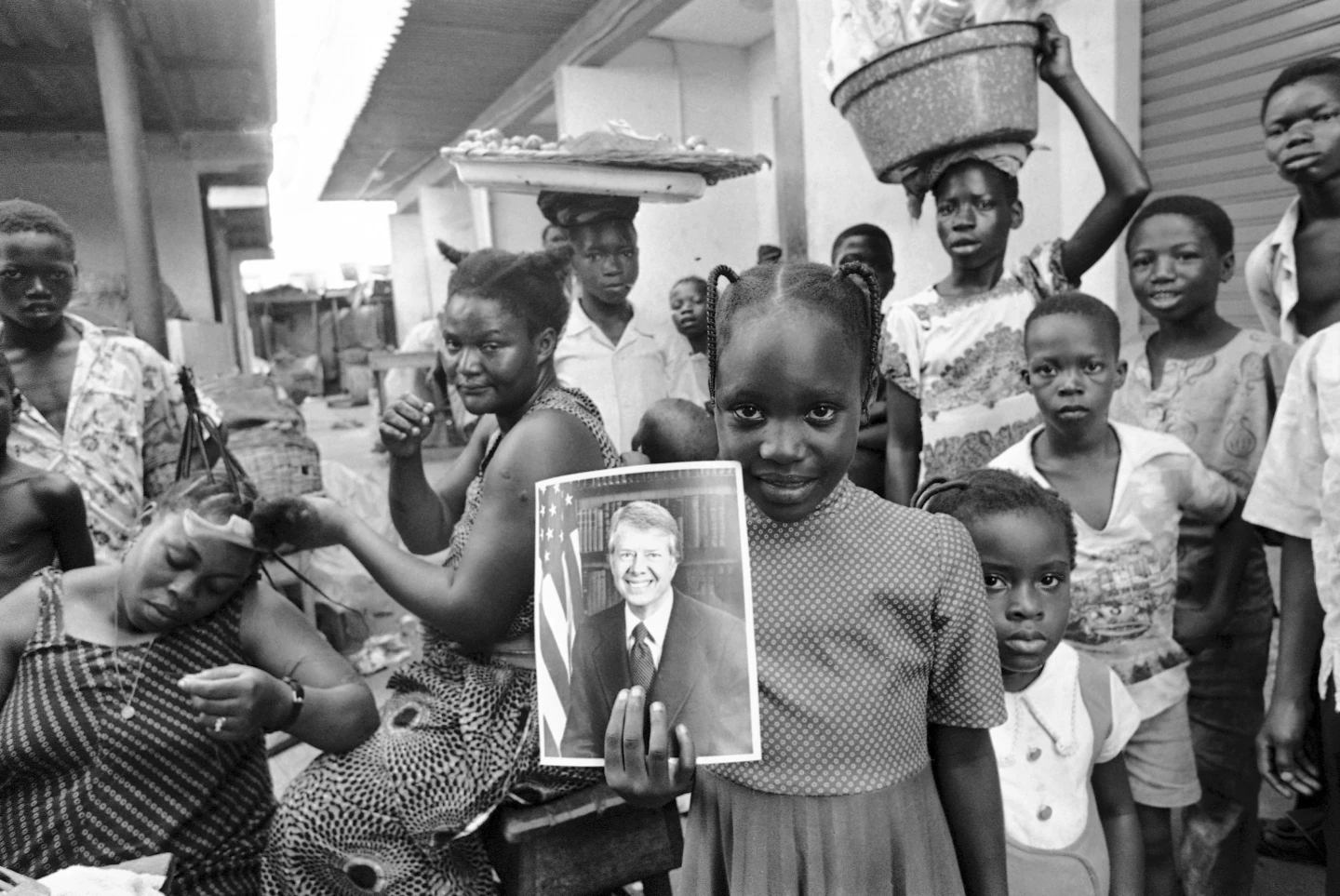
A girl holds a portrait of U.S. President Jimmy Carter in a market in Lagos, Nigeria, March 31, 1978, the day of his arrival for a state visit, the first to Africa by an American President. Credit: AP Photo
Jimmy Carter, who served as the 39th President of the United States from 1977 to 1981, was a trailblazer in many respects. He was the first U.S. president to make a state visit to sub-Saharan Africa, signaling a significant shift in American foreign policy. Until his presidency, U.S. leaders had shown little interest in Africa, even as independence movements swept the region in the 1960s and ’70s. Carter’s commitment to Africa was driven by both geopolitical considerations and a deep sense of moral responsibility. He prioritized human rights issues, condemning apartheid South Africa and championing the independence movements in Namibia and Zimbabwe. During the Cold War, Southern Africa was a critical battleground, with the U.S. and Soviet Union vying for influence. Carter’s administration recognized the urgency of addressing the crisis in Rhodesia (now Zimbabwe), where the insurgency against the white minority government of Ian Smith was escalating. His administration’s efforts, led by UN Ambassador Andrew Young and Secretary of State Cyrus Vance, culminated in the Lancaster House talks in Britain, which paved the way for Zimbabwe’s independence and black majority rule in 19802.
Championing Human Rights and Democracy
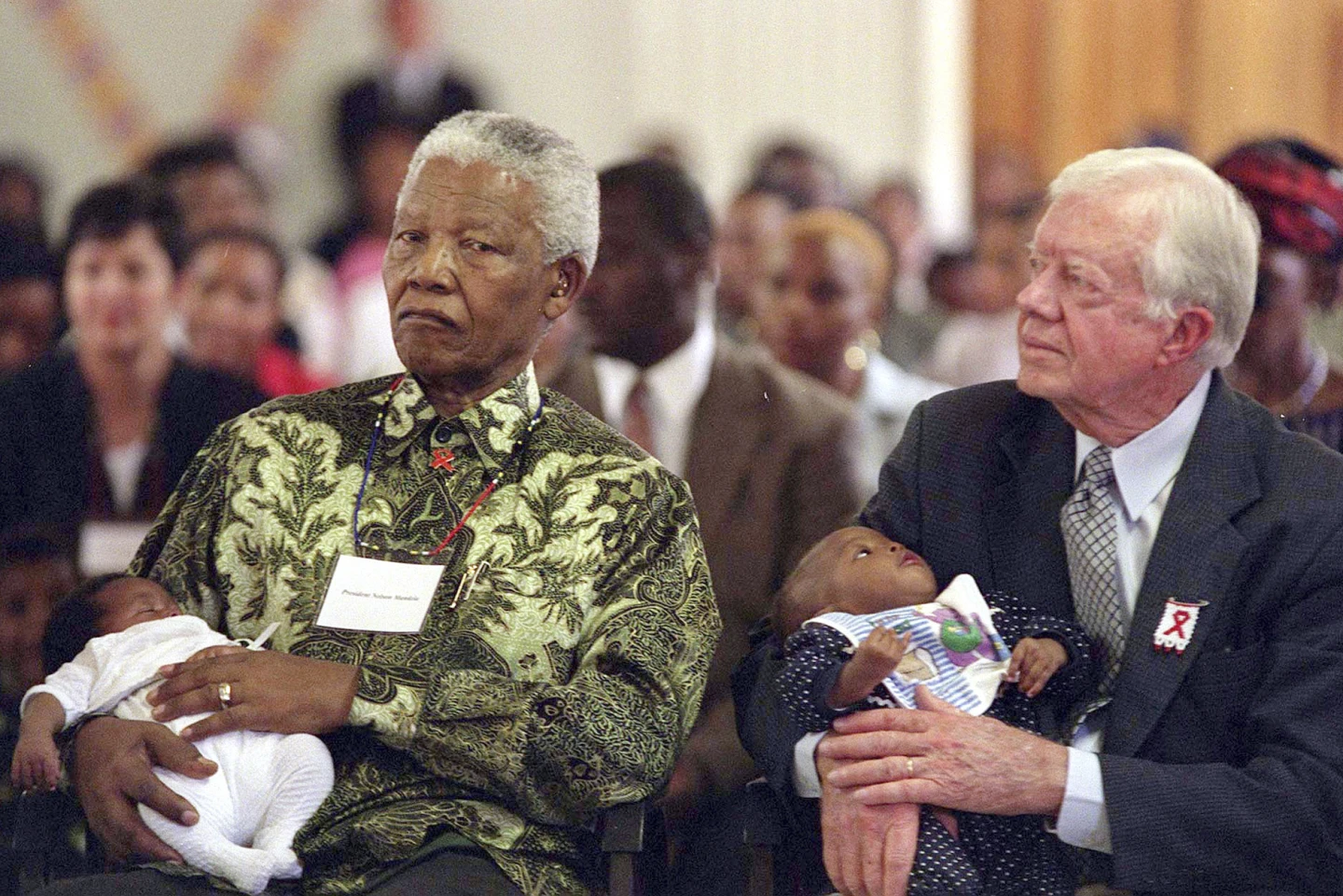
Former South African President Nelson Mandela,left, and former U.S. President Jimmy Carter, right, hold HIV-positive babies at the Zola Clinic in Soweto, March7, 2002. Credit-AP Photo
Carter’s presidency was marked by a strong emphasis on human rights, a principle that guided his foreign policy decisions. He believed that the U.S. had a moral obligation to support the fight against apartheid in South Africa and to promote democratic governance across the continent. His administration’s focus on civil and political rights laid the groundwork for future U.S. engagement in Africa.
One of Carter’s most significant achievements was his support for Zimbabwe’s transition from white rule to independence. He once called this effort “our greatest single success”. Carter’s dedication to human rights extended beyond his presidency, as he continued to champion social and economic rights through the Carter Center, which he founded in 1982. The Center’s work in Africa, particularly in the field of public health, has had a lasting impact, nearly eradicating diseases like Guinea worm disease1.
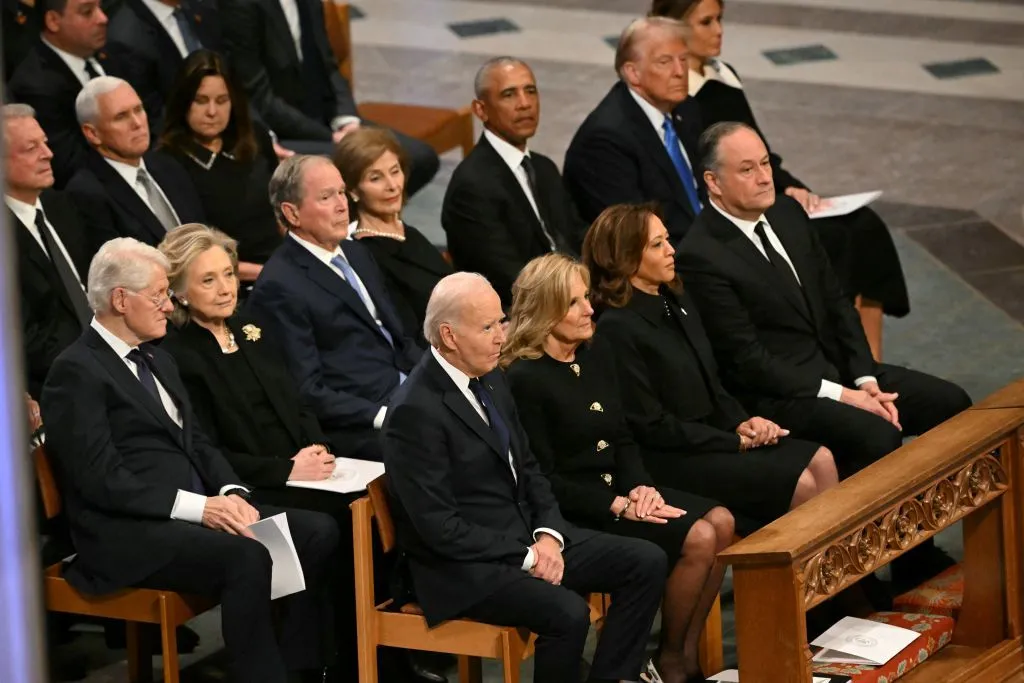
Joe Biden, Kamala Harris, Donald Trump and Barack Obama were among the select group of politicians in attendance for Jimmy Carter’s funeral. Credit-BBC
A Legacy of Peace and Justice
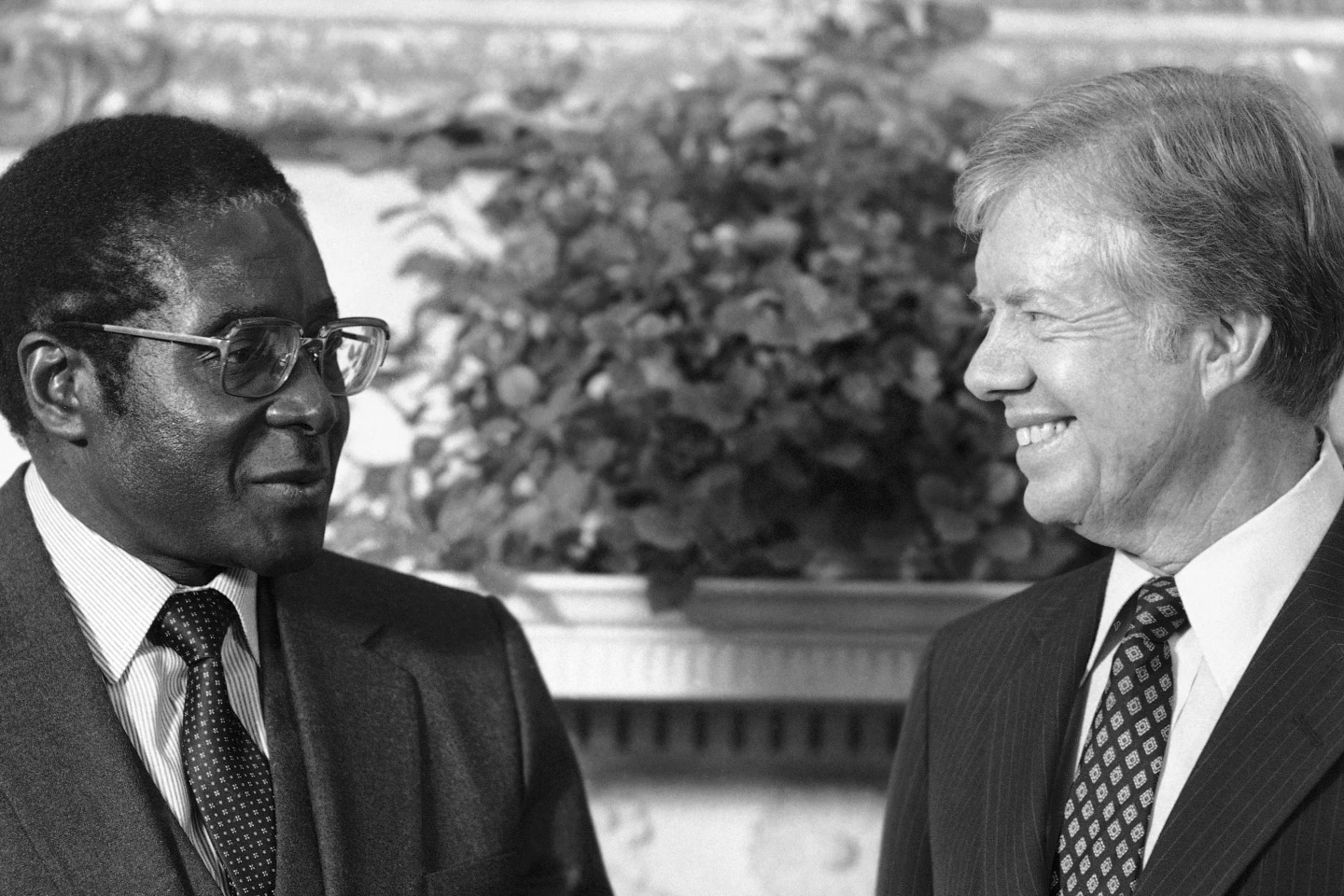
President Jimmy Carter meets with Zimbabwean Prime Minister Robert Mugabe in the Oval Office of the White House in Washington, Aug.27,1980. Credit-AP Photo
Carter’s post-presidential years were characterized by his unwavering commitment to peace and justice. He made 43 trips to Africa after leaving office, promoting Carter Center projects that empowered Africans to determine their futures. His efforts to monitor elections, mediate conflicts, and support public health initiatives have left an enduring legacy on the continent. While his foreign policy decisions remain subject to debate, his unwavering commitment to human rights and his tireless efforts to alleviate suffering across the continent will undoubtedly continue to inspire generations to come.
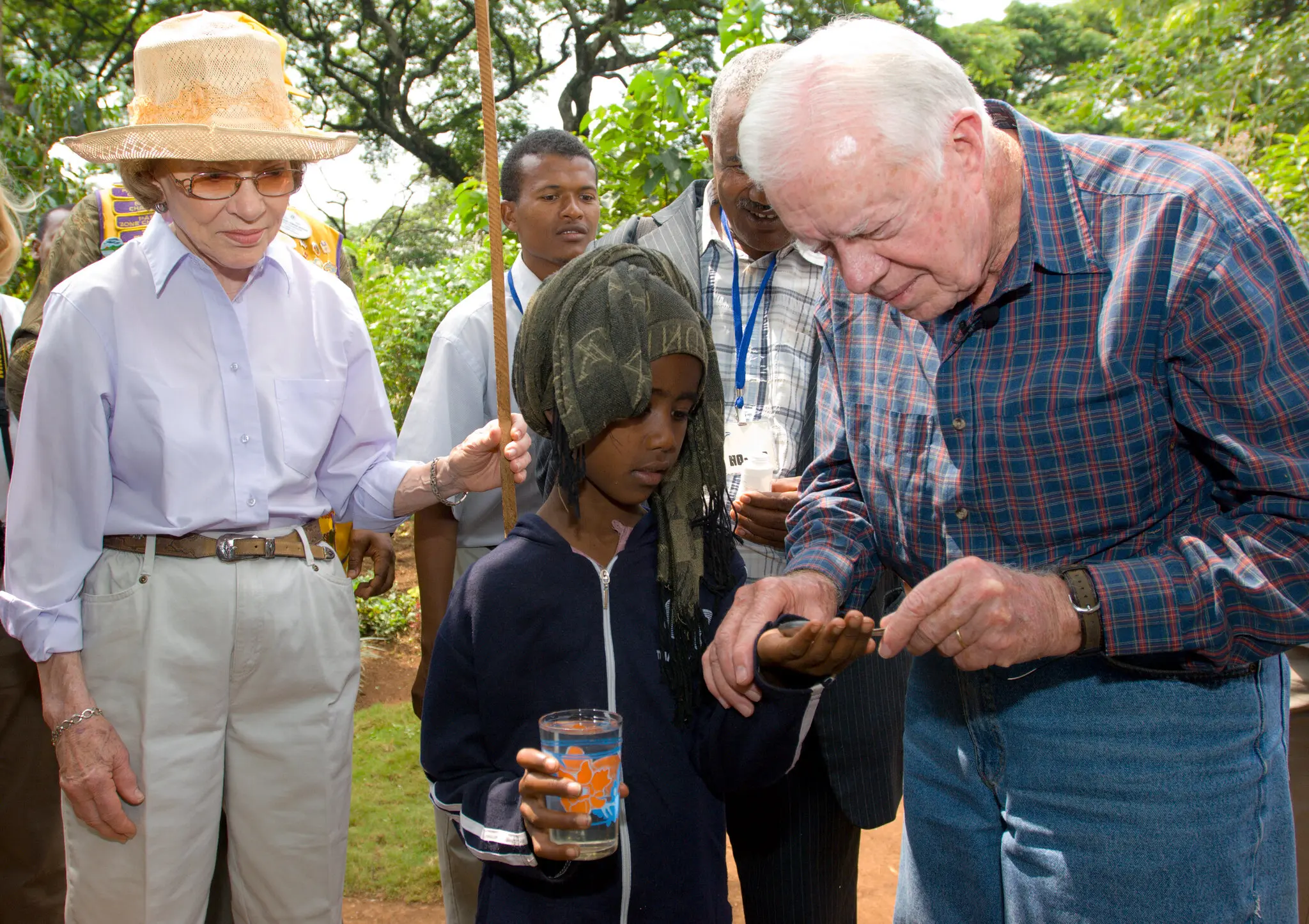
Jimmy Carter and his wife Rosalynn during a trip to Ethiopia in 2007. Credit-Carter Center
Carter’s approach to Africa was shaped by his own experiences with racial injustice in the U.S. South. He understood the importance of treating all sides with respect, even during the height of the Cold War. His moral determination to reckon with racism and his support for human rights were legendary.
As we remember Jimmy Carter, it is essential to acknowledge his significant contributions to Africa. His presidency and post-presidential efforts have left a lasting impact on the continent, promoting peace, justice, and human rights. Carter’s legacy serves as a reminder of the power of moral leadership and the importance of standing up for what is right, both at home and abroad.




